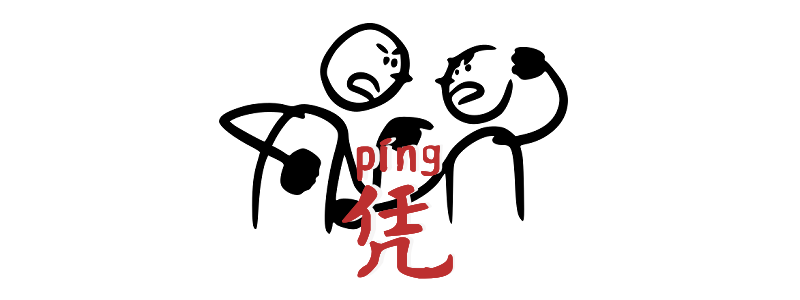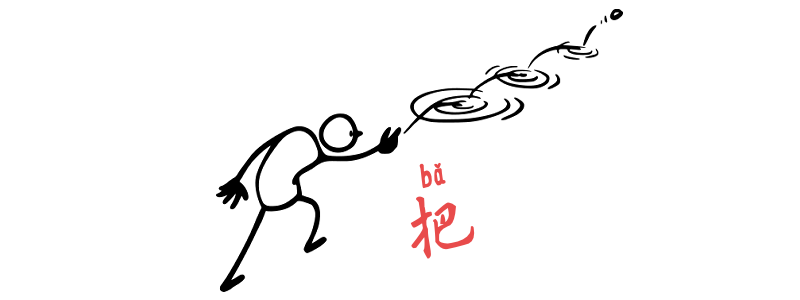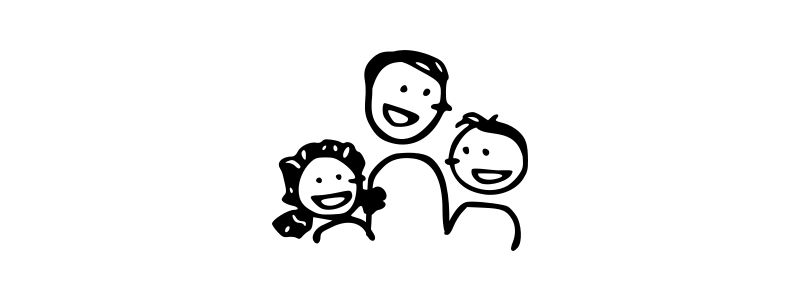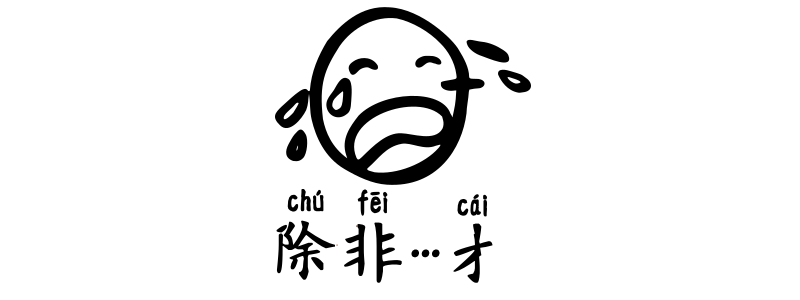Grammar Point:The word 憑凭 píng in Chinese is a preposition or verb used to indicate “relying on,” “based on,” or “depending on.” It can also express “by means of” or “according to.” It’s versatile and commonly used in formal or semi-formal contexts. Structure 憑凭 píng + N / Noun Phrase + V It indicates using something as…
Category: HSK 5
Chinese Verbs
In this article, we will discuss the features of Chinese verbs. Verbs in Chinese, like in English, can be divided into three major categories: the verb 是 shì meaning “to be,” the verb 有 yǒu meaning “to have,” and a broad set of verbs that can be loosely referred to as action verbs. * Some…
就 vs 才
就 jiù and 才 cái have many similar functions, but not the same, which confuses many Chinese learners. In this article, we are going to talk about 7 common comparisons of 就 jiù and 才 cái. 1. Time + 就/才 就 jiù 才 cái Earlier than expectedIf the action happened, you need to put 了…
The functions of 把 bǎ 3
Grammar Point:There are 3 functions of 把 bǎ in Chinese. Determination, command, and doing a movement on something that makes a change to it. If you’re not familiar with the basic foundation of 把 structure, I suggest reading the following articles first. Structure 1 The following structures are all about doing a movement on something…
Degree complements 2
Grammar Point:A “程度補語补语 chéngdù bǔyǔ” or “degree complement” is used to intensify or modify the degree of an action, the nature of a thing, or the degree reached in a state. Why do we need it Structure Adj. or Mental verbs + Degree Complements It is used to suggest that a situation is serious or…
Showing Perspective in Chinese 2
Grammar Point:In Chinese, the structures 在 zài··· 看来 kànlái and 从 cóng··· 来看 láikàn are commonly used to express a viewpoint. They can be translated as “in someone’s opinion” or “judging from a certain perspective.” Structure 在 + Somebody + 看來来 + Commentary This structure translates to “in someone’s opinion” or “from someone’s perspective.” It highlights a subjective…
Only if in Chinese
Grammar Piont:The structure 除非 chúfēi… 才cái… is used in Chinese to express a condition or requirement that must be met in order for something to happen. It can be roughly translated to “Only if… will…” or “Unless… then…” in English. Structure 除非 + Condition,才 + Result This structure emphasizes that something will only occur under…
Unless in Chinese
Grammar Point:In Chinese, ‘unless’ is expressed as 除非 chúfēi. It is commonly used with phrases such as 否則否则 fǒuzé or 要不然 yàobùrán to convey the meaning of ‘unless A, otherwise B’. Structure Result,除非 + Condition 我wǒ不bú做zuò了le, 除非chúfēi你nǐ幫bāng我wǒ加薪jiāxīn我wǒ不bú做zuò了le, 除非chúfēi你nǐ帮bāng我wǒ加薪jiāxīnI won’t do it unless you give me a raise. 我wǒ不要búyào吃chī這個zhège, 除非chúfēi你nǐ把bǎ紅蘿蔔hóngluóbo拿ná掉diào我wǒ不要búyào吃chī这个zhège, 除非chúfēi你nǐ把bǎ红萝卜hóngluóbo拿ná掉diàoI don’t want to eat this…
Even If in Chinese 3
Grammar Point:To express even if in Chinese, we need to use 即使 jíshǐ or 哪怕 nǎpà and usually followed by the second clause 也 yě. In this pattern, the first clause is a supposition, which is then struck down as impossible by the statement’s second clause. Structure 即使 + ···,也 + ··· Subject 1 can…
Using Yǒu to Express Attachment
Grammar Point:The “you sentence”, we call it 有字句 yǒuzìjù in Chinese. The word 有 yǒu has many functions. In this article, we are going to talk about “attachment” and “possession.” attachment in Chinese Structure S + 有 yǒu + 著/着 zhe + O It use to indicate existence or possession. 兩liǎng個ge國家guójiā之間zhījiān有yǒu著zhe長期chángqí的de友好yǒuhǎo關係guānxī两liǎng个ge国家guójiā之间zhījiān有yǒu着zhe长期chángqī的de友好yǒuhǎo关系guānxiThe two countries have a…









